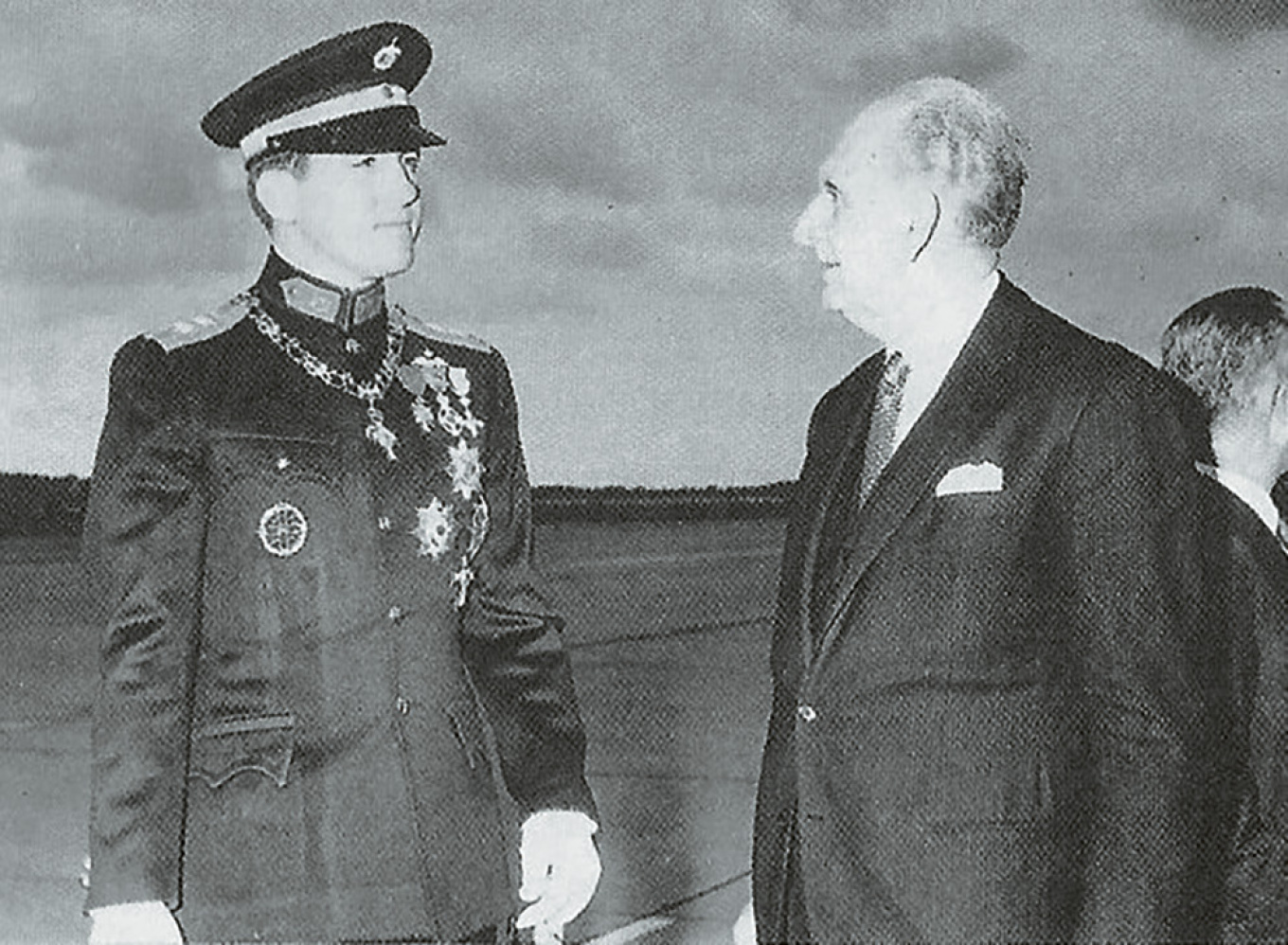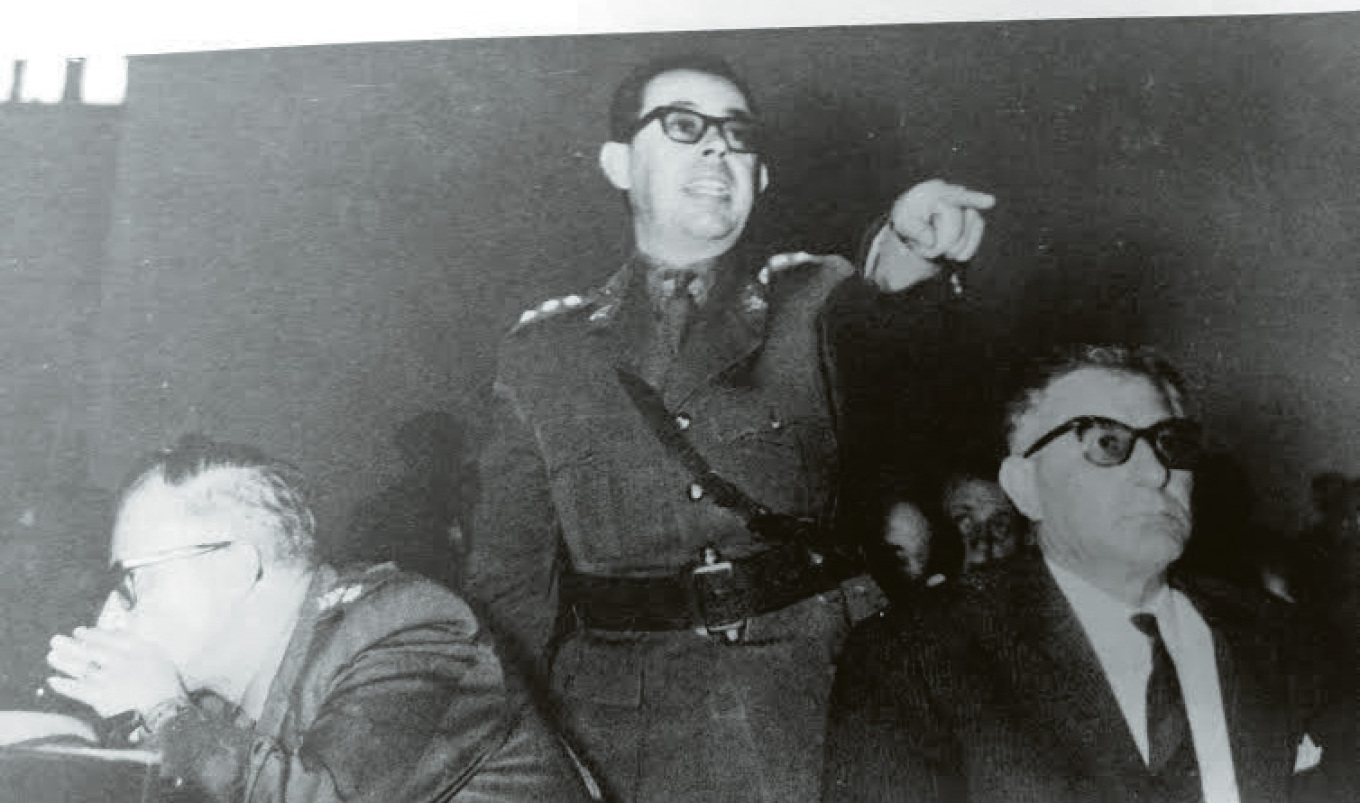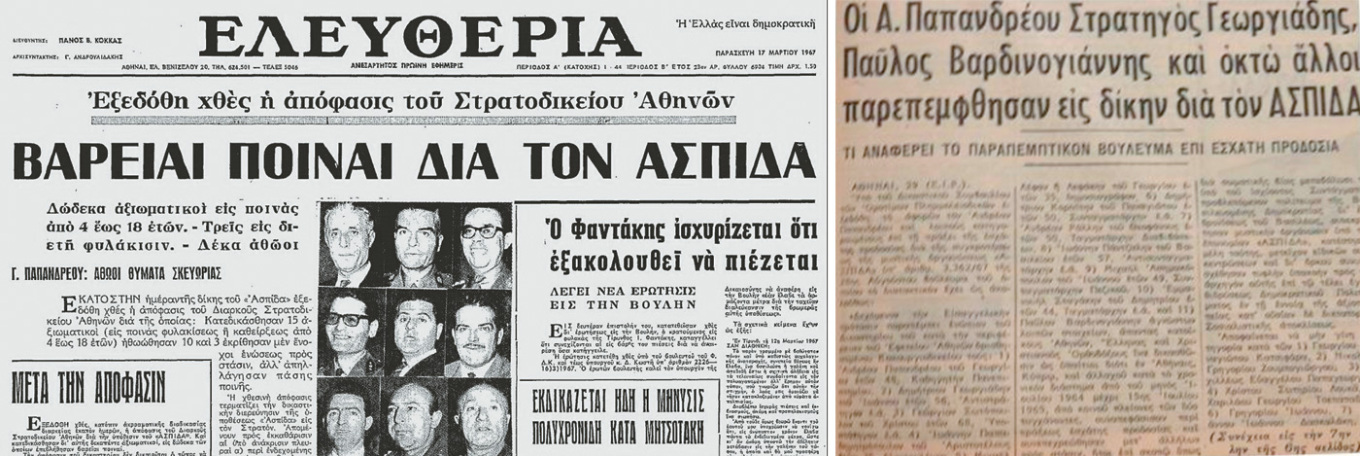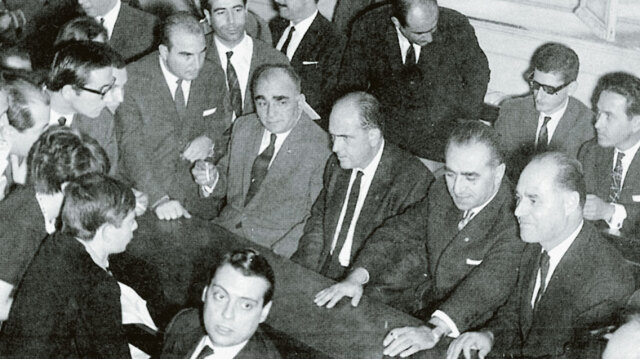May 18, 1965, stands as a pivotal moment in post-war Greece. Sixty years ago, the ASPIDA affair unfolded, an episode that continues to evoke intense debate in modern Greek history, with interpretations often shaped by political bias.

The conflict between King Constantine and Prime Minister Georgios Papandreou had disastrous consequences.
Over time, a dominant narrative has emerged, labeling the affair as a complete fabrication—a political and military maneuver aimed at undermining Georgios Papandreou’s government. However, this issue has never been fully clarified. An alternative perspective claims that a genuine scandal involving military officers, allegedly backed politically by Andreas Papandreou and other key members of the Centre Union, aimed to seize control of the armed forces. Some even proposed a more radical, though unsubstantiated, theory that they were plotting a coup similar to the one later executed by IDEA.
Nevertheless, it is widely accepted that the revelation of the ASPIDA affair triggered a chain of events that eventually led to the April 21, 1967 coup and the ensuing dictatorship lasting seven years. The reality is more nuanced than simple assertions convey, and many aspects of the affair remain unanswered, particularly regarding the true nature of ASPIDA: Was it a group of junior officers with democratic ideals trying to protect themselves, or were they motivated by greater ambitions?

Then-Captain Aris Bouloukos during the ASPIDA trial.
What was the actual relationship between Andreas Papandreou and ASPIDA? Was he its political leader? How much did Prime Minister Georgios Papandreou know? What were the connections between the accused officers tried and convicted? Were the charges uniformly strong, or were some targeted for their political views? To what extent did this serve as a pretext for the Palace to justify its 1965 split with Georgios Papandreou, and later facilitate the April coup plot? What role did King Constantine play in these events?
The “Beneficiaries”
In retrospect, two groups garnered significant advantages from the ASPIDA affair. The first was the faction of rogue military officers led by Georgios Papadopoulos, who effectively dismantled ASPIDA. Key figures who would later be involved in the junta emerged as prosecution witnesses, including EAT-ESA torturer Theodoros Theofilogiannakos and Nicos Sampson, who was made the puppet president of Cyprus by the coup plotters in 1974, replacing Archbishop Makarios.
The second major beneficiary was Andreas Papandreou. The intense personal attacks and legal challenges he faced boosted his popularity, shaping the narrative of a leader who compelled the Palace into unconstitutional tactics to oppose him. Several military defendants and defense lawyers later became key figures and MPs in PASOK, with some rising to ministerial positions: Menios Koutsogiorgas and Evangelos Giannopoulos were among the defense lawyers; Aris Bouloukos, Dimitrios Chondrokoukis, Panagiotis Papageorgopoulos, and Theofanis Tombras were among the officers.
The ultimate losers—devastatingly—were democracy and political stability.
Moreover, May 18 is tied to the tragic ending of one of the trial’s key figures, lawyer Nikiforos Mandilaras, who excelled as a defense attorney. Notably, on May 18, 1967, he was discovered dead on a beach in Rhodes under suspicious circumstances, with indications pointing toward murder.
The ASPIDA scandal broke shortly after Andreas Papandreou returned to his father’s government as Minister to the Presidency. The nation was grappling with severe political polarization, a situation instigated by the divisive 1961 elections that prompted Georgios Papandreou’s “Relentless Struggle,” the assassination of Grigoris Lambrakis, and Konstantinos Karamanlis’s departure from politics to Paris, culminating in the Centre Union’s sweeping victory in February 1964 elections.
On May 18, 1965, the far-right Larissa-based newspaper Imerisios Kirix published an article claiming the existence of a secret leftist organization within the Army named ASPIDA—an acronym for “Officers Save the Fatherland, Ideals, Democracy, Meritocracy.” The piece asserted that its objective was to oust the King and establish a left-wing dictatorship with Andreas Papandreou as its leader.
The opposition media launched vehement attacks against the government. In response, the Ministry of National Defense appointed Military Justice Lieutenant General Ioannis Simos to initiate an investigation. The next day, 13 MPs from the right-wing ERE party raised parliamentary concerns about the matter, setting off a political earthquake.
Opposition newspapers harshly criticized Andreas Papandreou for allegedly attempting to create a political faction within the Army. The government maintained that it was a setup meant to discredit the Centre Union and conceal the activities of the far-right paramilitary IDEA (Sacred Bond of Greek Officers), subsequently revealed to include many involved in the April coup.

Ask me anything
Explore related questions

















